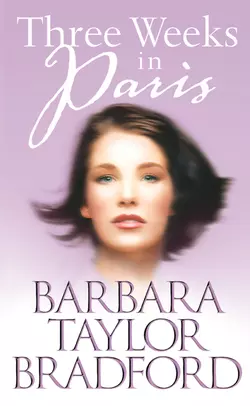Three Weeks in Paris

Barbara Taylor Bradford
Тип: электронная книга
Жанр: Современная зарубежная литература
Язык: на английском языке
Стоимость: 505.18 ₽
Статус: В продаже
Издательство: HarperCollins
Дата публикации: 16.04.2024
Отзывы: Пока нет Добавить отзыв
О книге: The latest novel from the genuinely bestselling author of seventeen compelling novels, from A Woman of Substance to The Triumph of Katie Byrne.